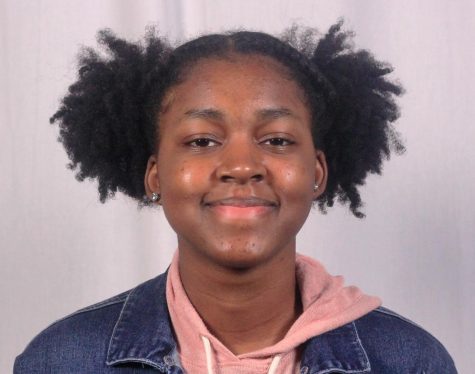Teaching 9/11
The World Trade Center towers stand before they were attacked by terrorists.
17 years ago today, four planes were hijacked by terrorists. One was flown into the Pentagon, one crash landed in an empty field, and two were flown into New York’s World Trade Center, killing thousands. In the years since, memorials have been put in place, one World Trade Center rebuilt, and the terrorist leader responsible for the attacks was killed by Navy Seals. These events, while known to most, however may not be known to some.
The class of 2019, Lake Ridge’s current seniors, will be the last group of students who can say they were alive when the September 11th attacks happened. Every other class after this one will be learning about the events secondhand.
Leighann Smith, AP US History teacher, was living in Canada and had just returned home from Louisiana when the attacks occurred. She was a teacher for 6 years before 9/11, but didn’t begin teaching again until 2015. Smith has noticed a difference in what students think during her post 9/11 time in the classroom.
“I think we’re seeing the shift of teaching 9/11 as a current event to teaching it as something that’s in the past. We’re losing our Vietnam and Korean War veterans but the same way I used to be able to have students ask their grandparents about Vietnam I’m noticing now, all they have are their parents’ stories on 9/11,” Smith said.
Despite this, Smith says her teaching of the subject hasn’t changed much because of the fact that even if students weren’t alive to see the twin towers fall, many have lived through seeing other acts of terrorism (school shootings, bombings, etc.) and will continue to do so.
“Five years from now I’ll be teaching to a group of students who have never known life without terrorism. I find it sad but I try to focus on explaining how life was before so they can see just how much has changed,” Smith said.
George Olsen, English IV teacher, feels the students only know about September 11th as an historical event, not as an event that actually happened. Olsen thinks it is important to teach about September 11th so students don’t lose the significance of the event.
“To help kids understand the importance of the day I relay secondhand stories that I heard firsthand from people that were in the twin towers such as firemen, and relay their stories as best as I properly can. The details of those stories leave lasting impressions,” said Olsen.
September 11th, while tragic and felt across the world, hit home personally for Olsen.
“Being a New Yorker who grew up watching the twin towers be constructed and watching for ten years as they went up, you felt a bit a pride with them. If you were a New Yorker you empathize with those victims because those buildings were so meaningful to you. It’s one of those events that we all share and should certainly consider bringing into the awareness of students. It was in our life time one of the most significant events that changed the course of history,” said Olsen.
Chandlier Richmond, junior, was born in July of 2002. Despite being born only 10 months after the tragedy, Richmond says that short time has made her experience learning about the event in school different.
“A lot of times it feels like I can’t actually relate to what everyone might have been feeling that day. Not only was I barely even thought of but I didn’t personally lose anybody so my connection to it is different,” Richmond said.
As far as Richmond can remember, her mother was the first person to explain to her what had happened on that day. After that, the education was up to her teachers, something she expects to change in the coming years.
“We had speakers who would come out and watched CNN Videos, but I think it’s starting to fizzle out. Past the 20th anniversary I think it’ll still be looked at as a tragedy but soon enough it’ll be just another day because people are coming along who have no personal attachment to it,” Richmond said.
Jayden Green, freshman, was born in April of 2004. She believes that because 9/11 is taught as a recent historical event, as someone born three years after it can be hard to follow the dialogue.
“When we learn about it teachers tend to teach from emotion and from a place of living through it and I don’t have that connection. It’s impactful but I wasn’t alive so it’ll never be a part of my story,” Green said.
Green’s mother was the first person to tell her what happened as well. She told her it was one of the scariest days of her life and that terrorists using planes had attacked New York.
“Because it was such a big thing that happened I don’t think anyone is exempt from feeling emotional about it but my hope is that they actually start to go more in depth with the information they tell us regardless of how far away the event is,” Green said.
No one can deny the impact September 11th has had still to this day. However, as time goes on, teachers have to make the decision on whether to let the attacks be history or keep them alive in the memory of up coming students.


